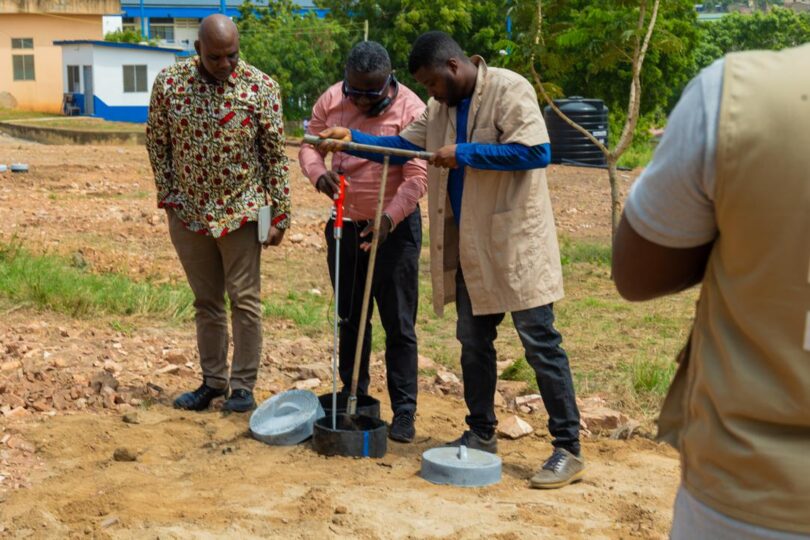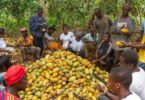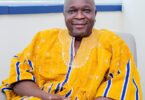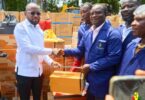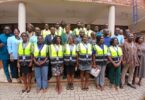Report By: Ishmael Barfi
Ghana Water Ltd. (GWL) made a significant stride in combating water loss with the launch of a new Leakage Detection Field at the Ghana Water Institute (GWI) in Weija.
This state-of-the-art training facility aims to equip GWL’s distribution staff with the skills to locate and fix leaks across the company’s extensive water distribution network.
Distinguished guests at the launch included the Danish Ambassador to Ghana, H.E. Tom Norring, partners from Aarhus Vand, GWL management, representatives from the Ghana Water Institute, and key stakeholders such as the State Interest and Governance Authority (SIGA), Public Utilities Regulatory Commission (PURC), UNICEF, USAID, and members of the media.
The Leakage Detection Field will provide GWL’s engineers and technicians with rigorous, practical training to identify and resolve network leaks, ensuring a robust and reliable water supply system.
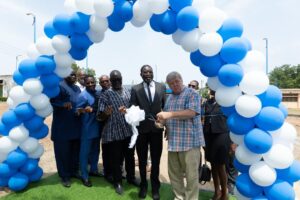
Ghana Water Ltd. (GWL) and Danish Embassy Strengthen Water Management with New Detection Field
At the Launch, Ing. Prof. Kwabena Nyarko, Chairman of the Governing Council for the Ghana Water Institute, emphasized the critical importance of reducing water losses to ensure reliable access to water for all Ghanaians.
He highlighted the global significance of the initiative, aligning it with Sustainable Development Goal 6 (SDG6), which aims for clean water and sanitation for all.
Meanwhile, Danish Ambassador H.E. Tom Norring recognized the longstanding partnership between Denmark and Ghana in the water sector that, he highlighted the collaborative work between GWL and Aarhus Vand, which has been instrumental in developing the new Leakage Detection Field.
He stressed that reducing water loss not only conserves resources but also improves service for those with irregular access, and can significantly reduce energy consumption.
On his part, the Managing Director of GWL, Ing. Dr. Clifford A. Braimah, noted that GWL has taken proactive steps to address the challenges GWL faces with water loss.
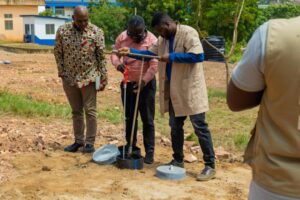
Ghana Water Ltd. (GWL) Staff testing the New Detection Field
He noted that, in 2017, GWL estimated a loss of 54% of total water produced as non-revenue water and through targeted efforts, this figure was reduced to 43%, though it has since risen to 48% post-COVID, resulting in an estimated USD 110 million in losses across GWL’s 90 urban water systems.
To combat this, GWL he revealed has invested in accurate measurement and network monitoring, including the shift from traditional mechanical meters to smart meters, digitizing commercial operations, and establishing world-class meter laboratories.
Dr. Braimah used the occasion to urge partners to focus on addressing commercial losses and called for increased infrastructural investments from external collaborators.
The event concluded with a tour of the Leakage Detection Field, where guests witnessed live demonstrations of leak detection technology in action.
The GWL team, with support from Aarhus Vand, showcased the field’s capabilities in detecting, locating, and fixing leakages, marking a significant step towards improving water management and sustainability in Ghana.
Source: www.thenewindependentonline.com


